Aaron's Blog
Blog Post Categories

Surfing Beyond the AI Echo Chamber: Embracing Human Creativity in the Tech Tsunami 🌊🤖🎨
“Creativity is intelligence and having fun” - Albert Einstein
Introduction
Welcome to the latest edition of our exploration into the dynamic world of technology and creativity. I'm Aaron Alfini, a passionate advocate for the ingenious fusion of human intellect and technological advancement. In this issue, we delve into the concept of the "AI echo chamber" - a metaphorical space where over-reliance on artificial intelligence stifles the boundless potential of human creativity. As we ride the formidable waves of the tech tsunami, it’s vital to understand how this over-dependence can lead to a homogenized landscape of ideas, mirroring scenarios from iconic films like 'The Matrix' and 'Inception'. This newsletter aims not just to illuminate these challenges but also to inspire a reawakening of the human element in innovation. We’ll explore the intricate dance between AI's capabilities and the irreplaceable depth of human perception and creativity.
Background
The journey of AI, from an unbelievable concept to a ubiquitous reality, mirrors the evolution of human thought and innovation. Historically, technological advancements have always been intertwined with human creativity, each driving the other forward. However, in this rapid ascent, we risk overlooking a fundamental truth: human creativity is not a linear, algorithmic process. It's a multifaceted, emotionally rich phenomenon that AI, in its current state, cannot fully replicate. This unique human attribute goes beyond data analysis, encompassing empathy, contextual understanding, and cultural nuances. Recognizing this distinction is crucial as we navigate the increasingly AI-dominated landscapes of our personal and professional lives.
Key Challenges
The most significant challenge in the current tech-dominated era is the potential for an innovation echo chamber, where AI algorithms, learning from existing patterns, perpetuate a cycle of repetitive ideas. This phenomenon can be likened to the controlled reality of 'The Matrix', where possibilities are confined within predefined boundaries. In the business world, this leads to a plateau in true innovation, with companies often following trends rather than setting them. The danger lies not just in the redundancy of ideas but also in the gradual erosion of creative thinking, a skill that has propelled human progress throughout history.
Solutions and Recommendations
To break free from the AI echo chamber, businesses must actively cultivate environments that encourage human creativity and diversity of thought. This involves embracing a mindset similar to the fantastical dreamscapes of 'Inception', where the boundaries of imagination are limitless. Companies should encourage their teams to engage in childlike curiosity, challenging the status quo and thinking beyond conventional norms. Workshops, brainstorming sessions, and cross-disciplinary collaborations can be effective tools in fostering this culture. Additionally, integrating AI as a tool to augment, rather than replace, human creativity can lead to more innovative and effective solutions.
By the Numbers
Compelling statistics back the correlation between a creative culture and business success. According to Adobe's "State of Create" study, companies that foster creativity achieve 1.5 times higher market share compared to less creative counterparts. Furthermore, an IBM survey of CEOs found that creativity was identified as the most crucial factor for future success. In terms of innovation, PwC reports that 85% of CEOs agree that AI will significantly change the way they do business in the next five years. These figures underscore the importance of balancing AI integration with the nurturing of human creativity to stay competitive and innovative in the evolving business landscape.
Future Outlook
Looking ahead, the interplay between AI and human creativity is poised to define the next era of innovation. As AI capabilities continue to expand, they will increasingly serve as powerful tools that complement human ingenuity. The future will likely see a hybrid model where AI provides analytical horsepower, while human creativity drives vision and strategy. This symbiosis could unlock unprecedented levels of innovation, solving complex problems and creating new opportunities. However, the key to this future lies in our ability to maintain and cherish the human element in creativity, ensuring that technology serves as a catalyst rather than a replacement for human ingenuity.
Closing
The journey through the tech tsunami is one of balance and synergy. While AI offers incredible tools for efficiency and data processing, the essence of innovation and progress remains deeply rooted in the human spirit. As business leaders, embracing this balance is essential for fostering a culture of true innovation and staying ahead in a rapidly evolving landscape. At Aaron Alfini Enterprises, we specialize in providing fractional CIO services that blend technological prowess with a deep understanding of human creativity. We invite you to join us in harnessing the best of both worlds, ensuring your business survives and thrives in the tech tsunami.

Surfing Beyond the AI Echo Chamber: Embracing Human Creativity in the Tech Tsunami 🌊🤖🎨
“Creativity is intelligence and having fun” - Albert Einstein
Introduction
Welcome to the latest edition of our exploration into the dynamic world of technology and creativity. I'm Aaron Alfini, a passionate advocate for the ingenious fusion of human intellect and technological advancement. In this issue, we delve into the concept of the "AI echo chamber" - a metaphorical space where over-reliance on artificial intelligence stifles the boundless potential of human creativity. As we ride the formidable waves of the tech tsunami, it’s vital to understand how this over-dependence can lead to a homogenized landscape of ideas, mirroring scenarios from iconic films like 'The Matrix' and 'Inception'. This newsletter aims not just to illuminate these challenges but also to inspire a reawakening of the human element in innovation. We’ll explore the intricate dance between AI's capabilities and the irreplaceable depth of human perception and creativity.
Background
The journey of AI, from an unbelievable concept to a ubiquitous reality, mirrors the evolution of human thought and innovation. Historically, technological advancements have always been intertwined with human creativity, each driving the other forward. However, in this rapid ascent, we risk overlooking a fundamental truth: human creativity is not a linear, algorithmic process. It's a multifaceted, emotionally rich phenomenon that AI, in its current state, cannot fully replicate. This unique human attribute goes beyond data analysis, encompassing empathy, contextual understanding, and cultural nuances. Recognizing this distinction is crucial as we navigate the increasingly AI-dominated landscapes of our personal and professional lives.
Key Challenges
The most significant challenge in the current tech-dominated era is the potential for an innovation echo chamber, where AI algorithms, learning from existing patterns, perpetuate a cycle of repetitive ideas. This phenomenon can be likened to the controlled reality of 'The Matrix', where possibilities are confined within predefined boundaries. In the business world, this leads to a plateau in true innovation, with companies often following trends rather than setting them. The danger lies not just in the redundancy of ideas but also in the gradual erosion of creative thinking, a skill that has propelled human progress throughout history.
Solutions and Recommendations
To break free from the AI echo chamber, businesses must actively cultivate environments that encourage human creativity and diversity of thought. This involves embracing a mindset similar to the fantastical dreamscapes of 'Inception', where the boundaries of imagination are limitless. Companies should encourage their teams to engage in childlike curiosity, challenging the status quo and thinking beyond conventional norms. Workshops, brainstorming sessions, and cross-disciplinary collaborations can be effective tools in fostering this culture. Additionally, integrating AI as a tool to augment, rather than replace, human creativity can lead to more innovative and effective solutions.
By the Numbers
Compelling statistics back the correlation between a creative culture and business success. According to Adobe's "State of Create" study, companies that foster creativity achieve 1.5 times higher market share compared to less creative counterparts. Furthermore, an IBM survey of CEOs found that creativity was identified as the most crucial factor for future success. In terms of innovation, PwC reports that 85% of CEOs agree that AI will significantly change the way they do business in the next five years. These figures underscore the importance of balancing AI integration with the nurturing of human creativity to stay competitive and innovative in the evolving business landscape.
Future Outlook
Looking ahead, the interplay between AI and human creativity is poised to define the next era of innovation. As AI capabilities continue to expand, they will increasingly serve as powerful tools that complement human ingenuity. The future will likely see a hybrid model where AI provides analytical horsepower, while human creativity drives vision and strategy. This symbiosis could unlock unprecedented levels of innovation, solving complex problems and creating new opportunities. However, the key to this future lies in our ability to maintain and cherish the human element in creativity, ensuring that technology serves as a catalyst rather than a replacement for human ingenuity.
Closing
The journey through the tech tsunami is one of balance and synergy. While AI offers incredible tools for efficiency and data processing, the essence of innovation and progress remains deeply rooted in the human spirit. As business leaders, embracing this balance is essential for fostering a culture of true innovation and staying ahead in a rapidly evolving landscape. At Aaron Alfini Enterprises, we specialize in providing fractional CIO services that blend technological prowess with a deep understanding of human creativity. We invite you to join us in harnessing the best of both worlds, ensuring your business survives and thrives in the tech tsunami.
Copyright 2026. All rights reserved
Testimonials

Lorem ipsum dolor sit amet, consectetur adipiscing elit, sed do eiusmod tempor incididunt ut labore et dolore magna aliqua. Ut enim ad minim veniam, quis nostrud exercitation ullamco laboris nisi ut aliquip ex ea commodo consequat.
JANE DOE

Lorem ipsum dolor sit amet, consectetur adipiscing elit, sed do eiusmod tempor incididunt ut labore et dolore magna aliqua. Ut enim ad minim veniam, quis nostrud exercitation ullamco laboris nisi ut aliquip ex ea commodo consequat.

